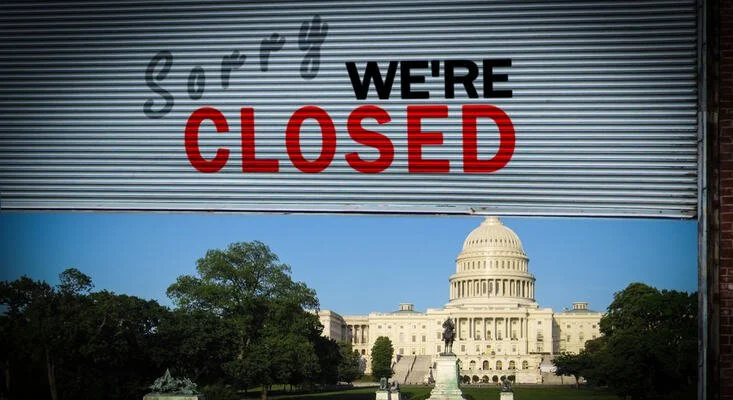How a Government Shutdown Affects Veterans

Many core Veterans Affairs (VA) services and payments continue during a Government Shutdown due to advance appropriations. Health care remains open, benefits are paid, and claims processing continues. Some discretionary services and public-facing offices slow or pause. The fastest path forward is to confirm what continues, note what may pause, and prepare simple workarounds.
VA services that continue
- VA medical centers, outpatient clinics, and Vet Centers remain open, with pharmacies, lab, and urgent services operating so Veterans can continue appointments, prescriptions, and follow-up care without changing established clinical plans.
- Benefit payments continue, including disability compensation, pension, survivor, education (GI Bill), and housing benefits, because most core VA accounts receive advance-year funding that cushions temporary federal funding interruptions.
- Claims and appeals processing continues, and the Board of Veterans’ Appeals issues decisions, although some timelines may reflect routine variability; upload evidence and track statuses to keep your individual case moving efficiently.
- Crisis support remains available 24/7: Veterans Crisis Line (Dial 988, Press 1) and main VA help line (1‑800‑MyVA411), which are treated as essential services for health and safety continuity.
- Burial services continue at national cemeteries, including interments and essential scheduling, while families can still coordinate honors and immediate needs through onsite teams despite broader administrative slowdowns.
VA services that may be impacted
- Some transition and career assistance programs pause, including in-person workshops and individual counseling, which can shift timelines for resume support, certification planning, or employment referrals during the affected period.
- Certain hotlines focused on non-urgent inquiries may be closed or limited; prioritize essential lines and rely on online knowledge bases for program rules and downloadable forms when voicemail trees are offline.
- Regional benefits offices may close to walk-ins, even while online claims tools remain available; prepare to upload documents digitally and use secure messaging to avoid unnecessary travel or missed in-person appointments.
- Some cemetery services such as grounds maintenance and permanent headstone placement can be delayed; time-sensitive interment services continue, but non-urgent tasks resume after full operations return.
- Public outreach, social media updates, and non-funded communications may be suspended; monitor VA.gov and your facility’s webpage for official service updates rather than relying on third-party summaries.
Key Takeaways
- Most VA benefits and health care continue; verify direct deposit and appointments now.
- Some services pause: transition programs, select hotlines, regional walk-ins; use VA.gov and portals.
- Claims, appeals, and BVA decisions continue; upload complete, dated evidence to reduce rework.
- VA home loans proceed; confirm COE, order appraisal early, and stage verification alternatives.
- Active‑Duty Military may face pay delays; build cash buffers and contact creditors proactively.
- Centralize benefits letters, health summaries, and bank proofs; keep twice‑weekly dated updates for visibility.
Do VA disability, pension, GI Bill, and housing payments continue during a Government Shutdown?
Yes. Core VA benefits are backed by advance appropriations, so payments normally continue on schedule. Confirm your deposit details, monitor statements, and coordinate certifications with your school if you use the GI Bill. Official guidance and status pages are kept current at VA.gov/disability and VA.gov/education.
- Disability compensation, pension, survivor benefits, GI Bill stipends, and VA housing benefits are funded ahead, so deposits should post on normal cycles unless account issues require follow up with your bank.
- Update routing and account numbers in your VA profile and bank portal, because credential mismatches can delay settlement during higher volume periods when manual intervention takes longer.
- For GI Bill payments, ensure your School Certifying Official submits timely enrollment certifications, since late or corrected school data most often explains unexpected stipend timing differences.
Will VA health care, pharmacies, and Vet Centers stay open and fully staffed?
Yes. VA medical centers, clinics, pharmacies, and Vet Centers remain open. Use online tools to confirm appointments, request refills, and message your care team when phone lines are busy. Program overviews and eligibility details are at VA.gov/health-care.
- Primary care, specialty clinics, mental health, prosthetics, imaging, labs, and most ancillary services continue, so keep scheduled visits and refill medications unless your care team directs otherwise.
- Use digital check in, secure messaging, and refill tools to reduce hold times. Online submissions create timestamped records that help staff triage and verify what was ordered or rescheduled.
- Arrive with ID and insurance cards and consider earlier check in windows. If front desk staffing is lean, kiosks and apps can preserve your timeline by minimizing manual handoffs.
Which VA services typically slow or pause, and how should Veterans plan around them?
Non urgent, outreach, or discretionary services can pause. Regional walk in benefits offices may close even while online tools stay active. Plan to execute digitally, schedule early, and save confirmations. Cemetery operations for interments continue. Non urgent items may wait. See cem.va.gov for national cemetery information.
- Replace in person drop offs with secure uploads and e signatures where available. Clean filenames and dates reduce back and forth and speed reviews when hours are limited.
- Front load document requests, eligibility checks, and scheduling tasks. First in lines usually move first when paused functions resume, so complete prerequisites now.
- Track all submissions and confirmations in one shared folder. Precise labels, dates, and owners help you react fast as services restart and eliminate uncertainty about missing items.
How are claims, appeals, and Board of Veterans’ Appeals decisions affected?
Claims and appeals continue, and the Board issues decisions. Timelines can vary with routine workload. Keep your file moving by submitting complete evidence, responding quickly, and tracking status on VA portals. Benefits pathways are summarized at VA.gov/disability.
- Upload current and relevant evidence with descriptive filenames and dates so reviewers can locate facts in one pass and avoid iterative development requests.
- Respond to development letters within the stated window. Punctual, complete replies keep your claim near the front of the queue.
- Maintain a personal archive of submissions, notices, and decisions. A well indexed record accelerates Higher Level Reviews, Supplemental Claims, or appeals.
Does a Government Shutdown affect VA home loans, Certificates of Eligibility, and appraisals?
VA home lending continues, but verifications and appraisals can take longer. Verify your COE early, order the appraisal on day one, and stage acceptable alternatives for slower third party checks. Official program pages live at benefits.va.gov/homeloans.
- Confirm COE status at the start and place the appraisal order immediately. Panels and vendor queues can back up when many files compete for limited slots.
- Keep LES, W2s, pay stubs, and bank proofs ready in one folder. Complete and current documents let lenders clear conditions faster.
- Ask your lender which investor approved alternatives can substitute for slow transcripts or VOE so your file maintains momentum.
How do shutdowns affect Active Duty Military pay and benefits, and what should Veteran families know?
Active Duty service members report for duty. Pay can be delayed without specific appropriations. Moves and travel may pause. Veteran households with Active Duty members should build cash buffers and know Military relief options. General defense updates appear at Defense.gov.
- Monitor pay statements and allotments and set account alerts. Accurate routing and real time notifications help you prioritize payments if timing shifts.
- Verify changes to PCS and TDY orders early and inform landlords, movers, and schools. Proactive communication reduces penalties and rescheduling fees.
- If cash flow tightens, consult Military relief organizations and your installation support network before taking high cost debt.
Can I still reach VA by phone or online, and which hotlines remain open?
Yes. Essential hotlines remain open, including the Veterans Crisis Line at 988 then Press 1, and MyVA411 at 1 800 698 2411. Use VA portals for claims, appointments, refills, and secure messages when call queues are long. Program hubs live at VA.gov.
- Leverage VA.gov and facility portals for routine requests. Timestamped submissions help teams triage and document action for follow up.
- For urgent mental health needs, call 988 and press 1 any time. This essential service remains staffed at all hours.
- If a non essential line is closed, use web forms or knowledge articles and note the reference number for your records.
What documents should Veterans download and store before or during a Government Shutdown?
Build a dated folder with benefits letters, health summaries, ID, and banking proofs. This eliminates verification delays and supports benefits, lending, and care coordination. Consumer protections and sample letters are available at the CFPB Military page, consumerfinance.gov/servicemembers.
- Benefits summary letters, award notices, COLA updates, and deposit proofs for disability, pension, education, and housing to support schools and underwriters.
- Medical visit summaries, medication lists, immunization records, and referrals from VA portals so new clinicians can coordinate care without separate records pulls.
- Identity and service documents such as DD 214, driver license, and insurance cards. Use YYYY MM DD filenames to show freshness.
How can Veterans protect budgets, credit, and housing if pay or stipends are delayed?
Stabilize cash flow. Build a thirty to ninety day buffer, contact creditors early, and document arrangements in writing. Ask servicers about forbearance, deferral, or recast options. Keep receipts and bank proofs together to support future underwriting.
- Request short term hardship options from mortgage, auto, and utility creditors before due dates to preserve credit and avoid late fees.
- Pause nonessential subscriptions and divert savings to a buffer account that is visible on statements and calm to underwriters.
- Store hardship letters, payment confirmations, and account snapshots with dates and amounts to streamline later reviews.
What step by step actions should Veterans take this week to stay ready?
Follow a short checklist now. Confirm payments, update contact information, centralize documents, and move time sensitive tasks forward. These steps reduce friction you control and preserve leverage if a dependency slows. Save dated confirmations as you finish each step and repeat weekly while risks persist.
- Verify direct deposit details in VA and bank portals. Correct routing or address issues and save a dated screenshot.
- Download and organize benefits letters, award summaries, and recent bank proofs. Standardize filenames and store in one secure folder.
- Confirm upcoming medical appointments, prescription refills, and transportation. Arrange backups and add notes for access and parking.
- For home loans, verify COE status and order appraisals early. Upload income and asset documents for faster condition clearing.
- Call creditors and servicers about hardship or flexibility options. Capture written terms, due dates, and reporting treatment.
- Share a one page status update with family listing critical contacts, logins, and next steps with emergency numbers.
- Schedule a seven day review to submit new documents, check statuses, and adjust timelines before small slips become problems.
Compliance Note
This guide is educational and not legal, tax, or financial advice. Program details vary by law, appropriation, and agency policy. Always confirm current guidance on VA.gov, benefits.va.gov/homeloans, and other official federal pages before making time sensitive decisions.








 LRG Realty — Veteran-Owned. Trusted Locally.
LRG Realty — Veteran-Owned. Trusted Locally.